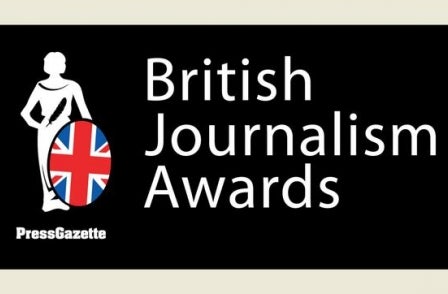
Today Press Gazette launches the first major UK journalism awards event open to all journalists wherever they work.
Partly as a response to the hacking scandal and the Leveson inquiry – the British Journalism Awards aim to celebrate and promote great journalism which is both interesting to the public AND in the public interest.
The judges include two-time journalist of the year winner and former leading member of the Sunday Times Insight team Philip Knightley (one of only two journalists to achieve this feat), head of journalism at City University George Brock and former Today Programme editor Kevin Marsh.
Event partners include: the Society of Editors, the National Union of Journalists and the Worshipful Company of Stationers.
The aim is to create an awards event with the prestige of the Pulitzers in the US which rewards journalists who not only tell compelling stories but who also make a difference for the better in society.
The new event will aim to complement, not compete, with the existing range of industry events which separately celebrate great journalism in broadcasting, magazines, regional and national newspapers and online. Press Gazette will continue to support and promote the Society of Editors Press Awards and Regional Press Awards.
The winners will be announced at a reception being held at Stationers’ Hall on 4 December.
The Stationers’ Company has been at the heart of the UK media for 600 years and the awards will be held on the very spot where, 400 years ago, the revision committee met to finalise one of the greatest ever British literary achievements – the King James Bible.
Press Gazette editor Dominic Ponsford said: “The British Journalism Awards will aim to provide a Pulitzer-prize style event which is unashamedly idealistic in its aims. This doesn’t mean that great popular journalism won’t be recognised. On the contrary, this event is as much about celebrating sensational journalism in the mould of that promoted by the Daily Mirror’s Hugh Cudlipp as it is about recognising high-minded investigations of the sort pursued by the Sunday Times Insight Team under Harold Evans.
“Crucially, the British Journalism Awards will recognise the best journalists of the year regardless of the medium they work on – be it print, online or broadcasting.”
Recognising the challenging economic climate, the British Journalism Awards will be free to enter and to attend (for invited guests) thanks to sponsors ASDA who have given their backing to quality British journalism.
The judges:
- George Brock, former managing editor of The Times and head of journalism at City University (and a Liveryman of the Stationers’ Company)
- Bob Satchwell, executive director of the Society of Editors
- Lori Miles, former editor of Mizz, Chat, Take a Break and the London Evening News
- Kevin Marsh, former editor of Today and the BBC College of Journalism
- David Banks, former editor of the Daily Mirror, New York Daily News, Sydney Daily Telegraph
- Philip Knightley, former special correspondent for The Sunday Times and two-time winner of the British Press Awards journalist of the year prize
- Dominic Ponsford, editor of Press Gazette
The awards categories:
- Investigation of the year (open to individuals and teams)
- Breaking news award (for the best story of the year)
- Photojournalist of the year
- Sports journalist of the year
- Business, finance and economics journalist of the year
- Science and technology journalist of the year
- Politics journalist of the year
- Journalism innovation of the year
- New Journalist of the year (open to those who have been in the profession for three years or under)
- Journalist of the year
Sponsors:
ASDA
Partners:
Society of Editors, NUJ, The Stationers’ Company
Awards criteria:
The judges will be looking for journalism which is compelling, revelatory and which makes a difference. It must be both interesting to the public – and in the public interest.
It will be up to the judges to decide how to apply the public interest test, but they must look for a higher standard than just that a story is interesting to the public.
The judges will take into account the level of journalistic skill, professionalism and effort employed to bring new information to light. The work must tell readers something they did not already know.
Work must have been first published or broadcast between 31 August, 2011, and 1 September 2012.
Judging will take place in October 2012 and will be on a jury-style system with a consensus needed from all the judges before each winner is decided. Journalism will be judged on its merits regardless of the size of news organisation which produces it. Shortlists of awards finalists will be up to eight-strong and aim to include representation across national press, regional press, consumer and business magazines and broadcasting.
All awards finalists will enter the British Journalism Awards hall of fame – a new section on www.pressgazette.co.uk.
The closing date for entries is 9am, 15 October. Shortlists will be announced on Tuesday, 6 November.
Entries should be made via email to britishjournalismawards@pressgazette.co.uk
Each entry needs to state the award category in the subject line of the email and contain up to three example of work plus an optional supporting statement of up to 300 words. These examples of work can be provided either as website links, PDFs or Jpegs. In the case of broadcast work entrants must provide a link to a website where it can be viewed or send clips via post on CD, DVD or memory stick format to British Journalism Awards, Press Gazette, John Carpenter House, John Carpenter Street, London EC4Y 0AN.
Email pged@pressgazette.co.uk to point out mistakes, provide story tips or send in a letter for publication on our "Letters Page" blog
